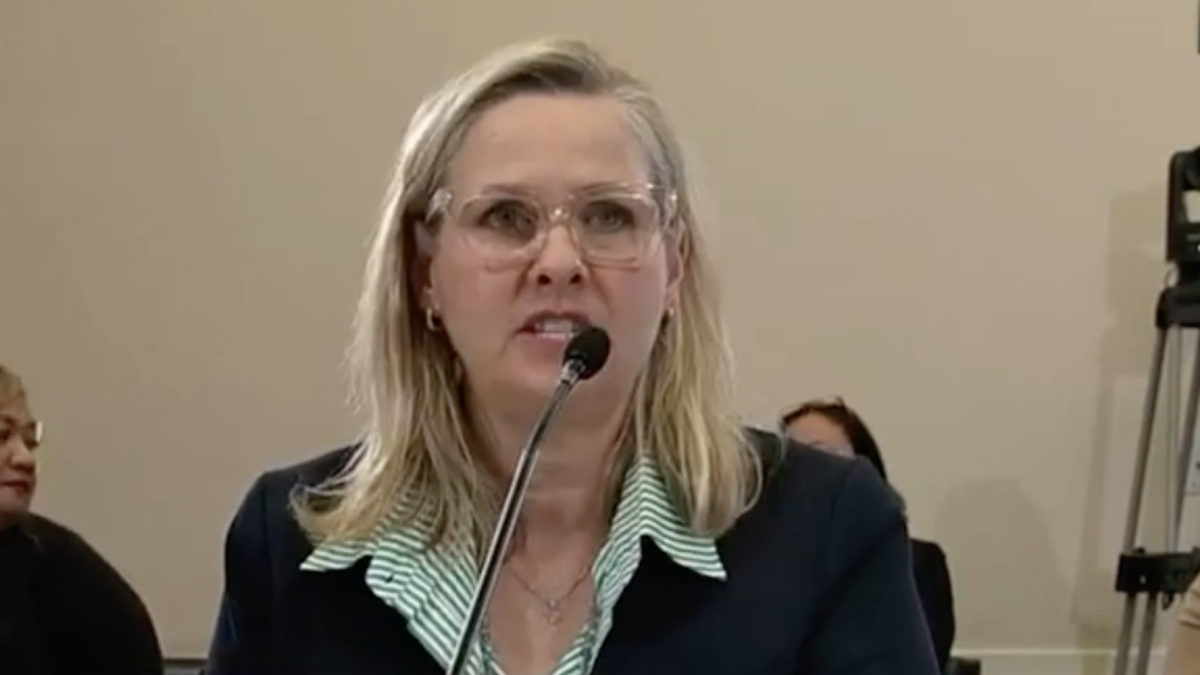
The Baltimore riots have provoked mixed feelings in conservatives. Blue America is consuming itself, and it’s tempting just to stand back and watch the spectacle. What we’ve seen in Baltimore is a clash of Democratic constituencies in one of the bluest parts of America.
Understandably, conservatives feel far less angst about this than their liberal counterparts do. You broke this, Democrats. You buy it.
Thinking that way might cause us to miss an opportunity. Conservatives can do much better, if America will let us. Let’s make that case.
It’s Crunch Time For Democrats
This doesn’t mean, of course, that anyone should negotiate with violent protesters directly. It’s a mistake to view riots as a rational speech act when the evidence points to an emotional outburst of frustration and rage. Clearly, it’s unacceptable to have outbreaks of lawlessness every time questions arise about police treatment of a black suspect. Still, those emotions are symptomatic of something, and we don’t have to sanction the response just in trying to explain it.
Progressive liberals have laid the foundation for the scene in Baltimore, in a thousand different ways. Their relentless expansion of the “social safety net” has undermined family and community structures, spawning a whole generation of undisciplined, angry, fatherless young men. The Democratic alliance with public-sector unions has left America’s cities with corrupt, ineffective, and massively expensive public services, while cementing ethnic rivalries that might otherwise have dissipated naturally over time.
The bitterest irony of all is that Democrats’ own political rhetoric constantly stokes the fires of race resentment and class envy, even though this most directly harms their own constituents. The ghettoes of Baltimore sit right in the shadow of the glittering abodes of the Washingtonian elite, and this surely contributes to the city’s unrest. But almost all of the inhabitants of this rags-and-riches world are Democrats, marching to a Democratic drum. And it’s Democrats who keep telling us how bad we should all feel about it.
Intervention Starting at Birth Can’t Prevent another Baltimore
What, then, can conservatives really say, apart from a smarmy “We told you so”? Our president has predictably suggested that conservatives are ill-equipped to handle the situation, but his desperation (and that of his party) may be most palpable in his repeated and ever-more-forceful stress on “early childhood education.”
It’s as though ranking Democrats have seen the pictures from Baltimore, and reflected that the present generation of impoverished urbanites (who might reasonably be seen as the real-world embodiment of “The Life of Julia,” having been nurtured their whole lives on a plethora of government services and programs) may be beyond redemption. For a big-government proponent, the only move at this point is to pray that we might have better luck with the next generation by building newer, shinier, better-funded institutions, and by plucking the children from their mothers’ arms at the earliest possible moment.
Twenty years from now, when it hasn’t worked, will we be hearing arguments for maternity-ward intervention, wherein liberal bureaucrats decide from the moment of birth which children need to be rescued from the contamination of an unsuitable home environment? That may be the only card they have left.
From our side, we can do much better. It may, however, require us to make a few moves that will appear counter-intuitive to our own base.
Why Liberals Don’t Really Believe In Systemic Injustice
We need to talk about systemic injustice. Even systemic racism might be a useful concept, if we can draw sufficiently clear distinctions between attitudinal and systemic problems. We won’t get insight into Baltimore’s problems by positing that Americans are harboring deep, psychological wells of subconscious bigotry. That tiresome canard is mostly just a Progressive avoidance strategy, which enables elite liberals to preserve their sense of moral superiority while perpetuating a system that’s materially and socially advantageous to them.
Liberals get incensed whenever ranking conservatives sell policy suggestions on the argument that they could help the poor and minorities. (Remember how crazy they got when Rep. Paul Ryan started talking about increasing opportunity for struggling black men?) That’s a good sign that we should hit these issues even harder.
Liberals do talk about systemic racism, but in many ways they really loathe the idea. There are a number of good reasons for that. First of all, blaming the system for disadvantaging people actually makes it harder to blame individuals, and it’s tough for progressives to give up on the happy vision of a red America awash in bigotry. In the moral psychology of a progressive liberal, not being racist is a central pillar of personal righteousness. In a politically polarized country, it’s naturally pleasant to them to suppose that their political enemies are boiling over with racial hatred, putting liberals on the side of the angels.
Even more important, though, is the fact that the system, if it is indeed unjust, was mostly built by them, in accordance with their guiding political principles. Especially in cities, and especially as concerns the poor and minorities, America’s social and political structures are overwhelmingly the brainchild of liberal progressives. Today more than ever, the ranks of America’s elite class are overwhelmingly liberal. How much can liberals really want to talk about systemic injustice? Physician, heal thyself.
The Great Society’s Victims Need Help
Once we understand this, we also see how we can acknowledge the racial elements of the problem without confessing to uncommitted sins. Race is clearly an issue in cities like Baltimore, but that’s not primarily because ordinary Americans want to see minorities stuck in a dysfunctional underclass. (The only people who actually have much to gain in that state of affairs are Democratic politicians, who want to secure the votes of impoverished minorities by promising them free stuff.)
The easiest way to explain the present situation is to say that historical bigotry (and its immediate after-effects) crossed paths with some serious social and political mistakes sometimes in the middle of the twentieth century. The combination has proven particularly catastrophic for impoverished, urban-dwelling African Americans, and instead of taking appropriate steps to address the situation, we’ve largely relied on a highly imperfect justice system to contain the negative ramifications. As those ramifications become obvious on the ground level, they can affect individual attitudes in morally objectionable ways. But that problem is mostly downstream from larger systemic problems that make it difficult for minorities to thrive.
The upshot is that race really is part of the big picture, but not because modern-day Americans are, in general, racist. We can’t fix this with a beautiful come-to-Jesus moment of racial rapprochement. We can only fix it by correcting injustices in the current system, and by pitching new and more effective ideas for how to help the victims of the Great Society get back on their feet.
Carpe Diem, Conservatives
This should be seen as an opening for conservatives. It’s time to get more aggressive about using liberals’ own language against them. Stop worrying whether they’ll throw a hissy-fit and call us bigots. They will. It’s what they do. But it doesn’t matter. Systemic injustice and, yes, systemic racism are real problems. The Progressive elite have been the primary authors and beneficiaries, and we shouldn’t let them get away with it anymore.
We should identify the gatekeepers of the privileged classes and explain how to neutralize their stranglehold on American life. That of course includes bureaucrats and politicians, but also union bosses, overpaid college administrators, and media moguls. Life will not get better for the poor and underprivileged so long as these people have cozy, high-status perches to defend. We should also make our justice system more accountable, but through prudent, systematic reforms, not withering torrents of criticism rained down on specific police departments in America’s most embattled neighborhoods. Across the board, it should be understood that municipal services exist to serve the people who pay for them. When they devolve into sinecures for friends of the people in power, we should protest. Similar complaints should of course be made about crony capitalists and their unjust privileges.
It’s possible to make things better in America, but all the evidence says that Democrats aren’t the ones to do it. Let’s persuade our compatriots that we can.









